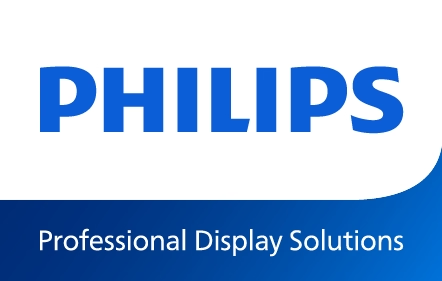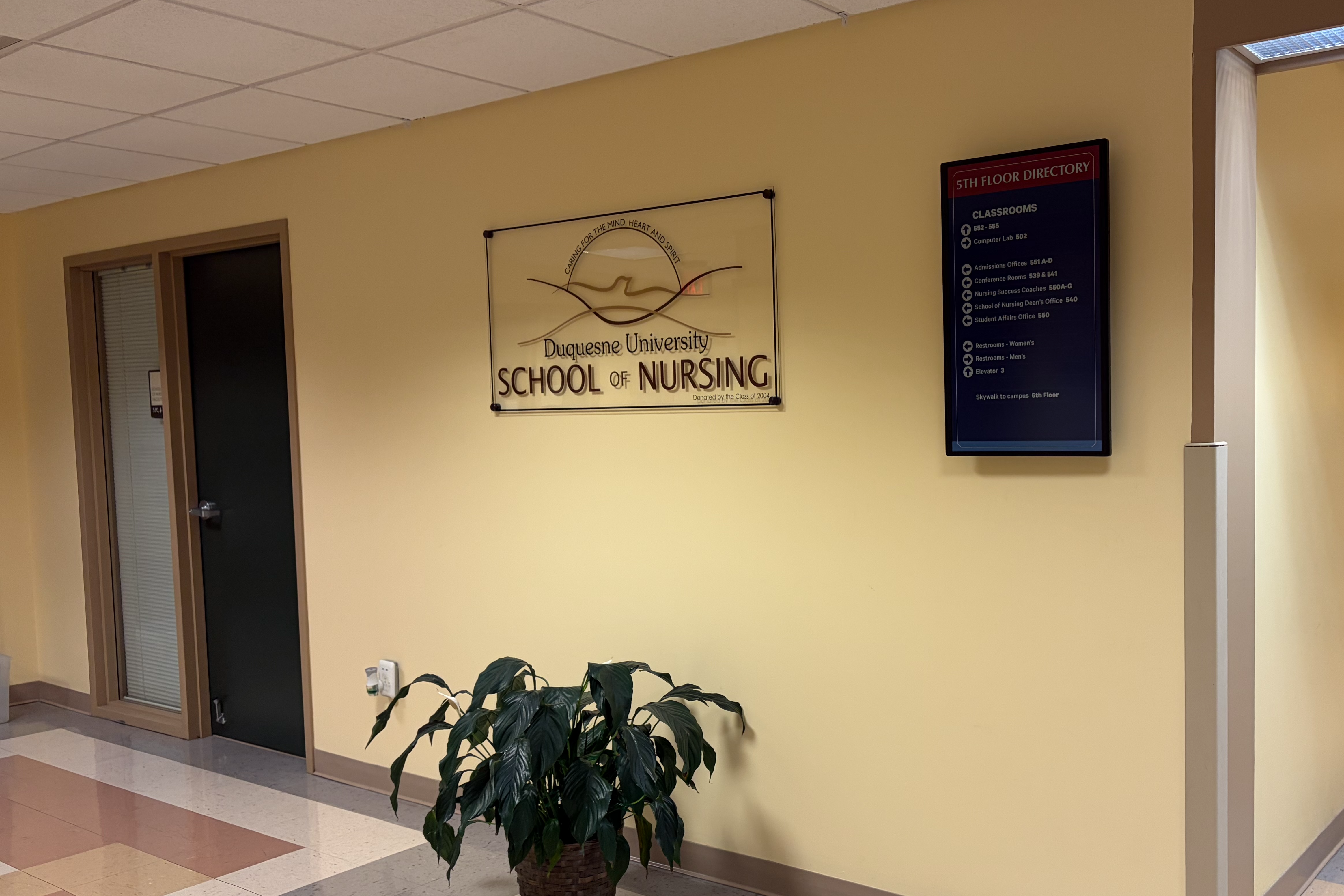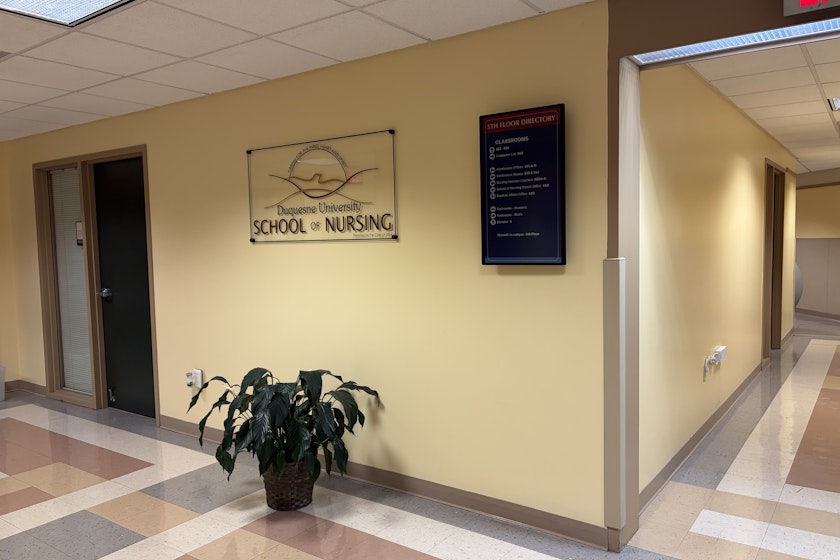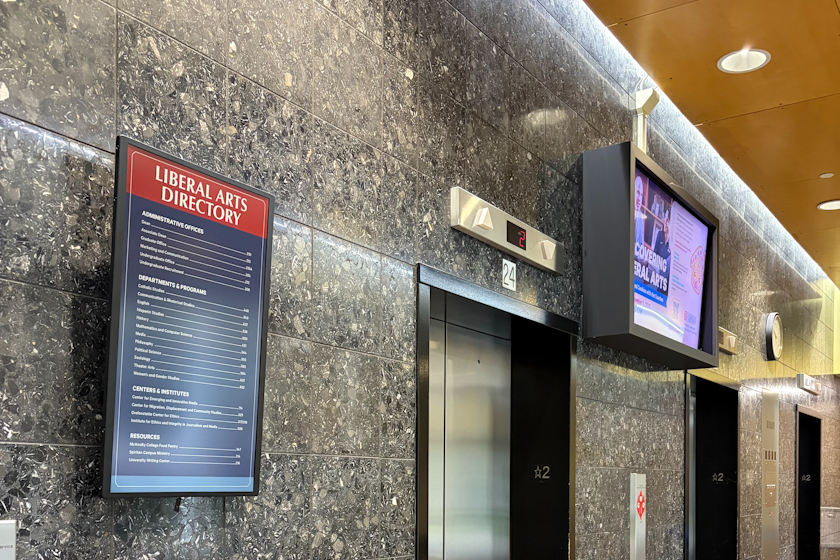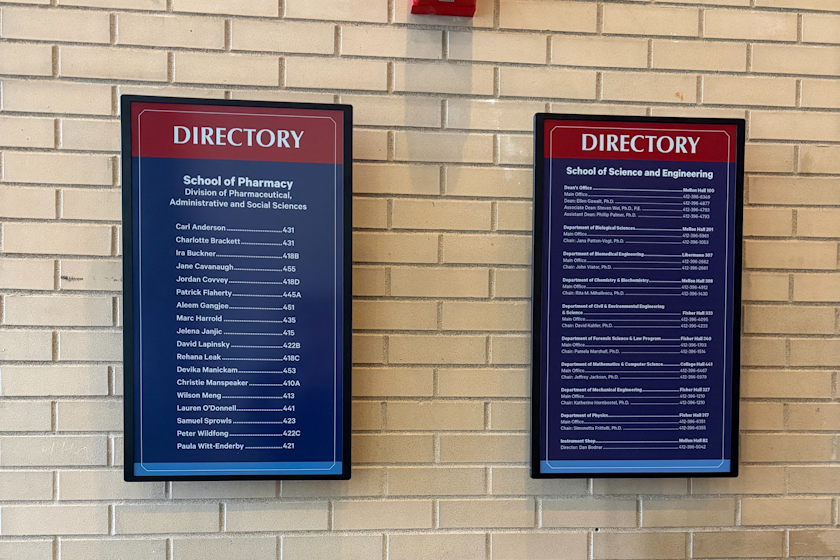Duquesne University
Philips Tableaux displays save campus energy, paper and time
While initial technology investment may seem high, we have eliminated the need for complicated installation, and we are saving on the cost of paper, printing, and time. So, the cost per department is more economical in the long run.
Background
Duquesne University is a private university located in Pittsburgh, Pennsylvania, US, founded in 1878. With a strong academic reputation and a commitment to ethical leadership, Duquesne offers a wide range of undergraduate, graduate, and professional programs.
The university emphasises community service, global engagement, and sustainability, blending academic excellence with a focus on social responsibility. Its scenic urban campus overlooks downtown Pittsburgh, providing students with vibrant opportunities for learning, research, and professional development in a supportive environment.
Challenge
Close to downtown Pittsburgh, many of the Duquesne University buildings are steeped in history, reflecting the establishment’s proud heritage in the city. With a desire to enable students with the latest technologies, the University also works to maintain the character of the campus, ensuring new fixtures, fittings and equipment are selected to integrate sympathetically with their surroundings.
With a mission to replace the tired paper directories all around the campus, the team was seeking new and innovative solutions to publish regularly changing information for students, staff, and visitors. The aim: easy to update directory signage that could save paper, time, and money, bringing a more sustainable solution that could also be deployed with limited access to power and internet.
Solution
Researching solutions, the Duquesne team discovered the Philips Tableaux ePaper displays – with an aesthetic that fit with the classic design around the campus, yet bringing the future ready digital capabilities to meet the challenge head on. Better still, requiring zero power to maintain a full colour static image – not even requiring a constant connection with a power supply – the Philips Tableaux also fit the bill for easy and flexible deployment, and for energy savings, too.
Partnering with PPDS, Duquesne University has so far selected a fleet of 21x 32”and 25” Philips Tableaux displays to deploy in various departments around the campus, providing updated directory information via its purpose designed templates.
Using this advanced colour technology to extend learning beyond classrooms into study areas and hallways for both faculty and students, Duquesne University has now extended this project to use Philips Tableaux displays in renovation projects across campus buildings including the School of Nursing, School of Liberal Arts and the College of Medicine.
When our directories need an update, we use a USB drive with the content and an extension cord for power. The time it takes to update the directory is quicker than the time it takes to walk to the building!
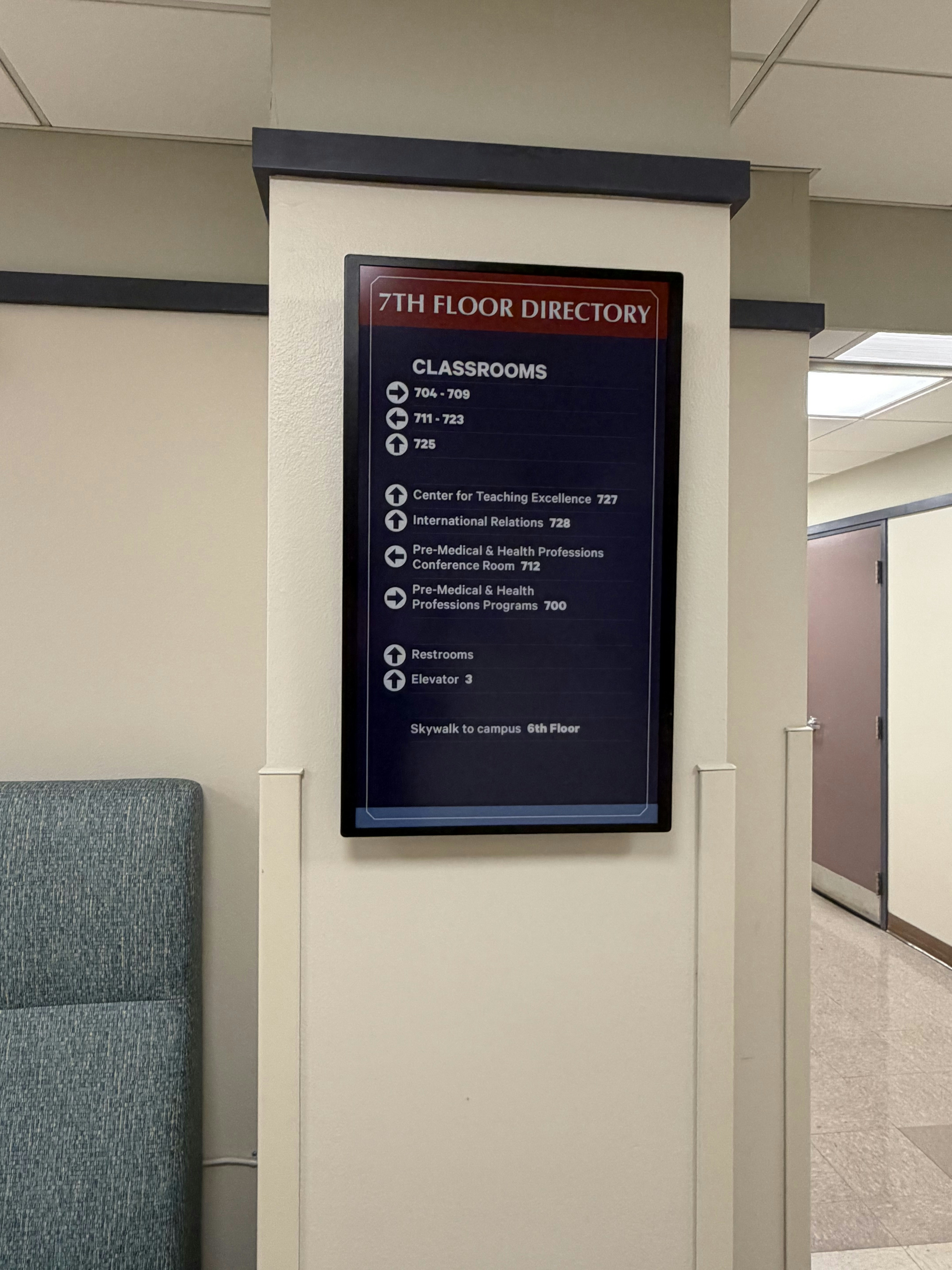
Benefits
Reducing waste: Eliminating the need for both paper and ink, as well as printing processes, Duquesne’s directories can be updated regularly with less environmental impact.
Zero power: Showing a full colour static image indefinitely without using any power at all, the display uses only minimal power for an image update.
Lightweight and portable: With no need for a power supply close at hand, Philips Tableaux displays can be positioned exactly where needed, with no additional cabling required.
Versatile performance: Ideal for Duquesne with the ability to update content without an internet connection, based on an Android SoC, Philips Tableaux can also be managed remotely if needed.
